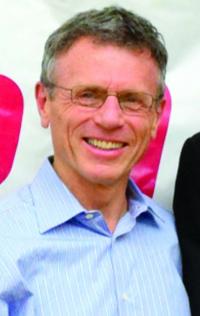March 7, 2019

Reducing the MBTA’s budget deficit next year and improving service will be possible thanks to new revenue from proposed fare increases, according to the authority. But one board member, aware of the pushback the hikes have drawn, wants the state to explore other ways of funding public transportation.
At the MBTA Board meeting on Monday, Brian Lang said it would be “completely wrongheaded” to generate new money for the system just by leaning more on commuters. Instead, he suggested, officials should pursue some combination of a higher gas tax, additional fees on rideshare services and a congestion-pricing toll system.
“We don’t operate in isolation and we are never going to be able to have a world-class transportation system unless there’s some kind of coordination and unless our political leaders grow a little bit of courage when it comes to taking these issue on, because it does mean to tax, to have fees,” said Lang, a former meatpacker and bellman who serves as president of UNITE HERE Local 26, Boston’s hotel and food service union. “The money’s going to have to come from somewhere, and not just — I’m sorry, they’re not customers, they’re riders — from the people who are depending on riding every day.”
Lang told reporters after the meeting he did not know if those proposals should fully replace a fare hike, but he did have his eye on at least lessening the MBTA’s proposal. He requested a study on how the projected new revenue from higher fares would be affected if buses — which would increase from $1.70 to $1.80 per ride — as well as student and senior passes were kept level.
Officials say the fare hikes, which average 6.3 percent, would bring in an extra $32 million per year, on a budget that approaches $2.1 billion. They defend the push as necessary to pay for service upgrades and as a way to help achieve fiscal stability after a decade of upheaval.
Early projections use the proposed increases as a key way to improve the MBTA’s finances. The baseline deficit is forecast to double in fiscal year 2020, according to a presentation by Paul Brandley, the authority’s CFO.
However, through a combination of cost-cutting measures and fare increases, Brandley said that deficit could be cut from $74 million to $24.5 million, which would be about a third lower than fiscal year 2019. He expressed optimism about the authority’s long-term financial trends, noting that revenues are expected to grow at a higher rate than operating expenses.
“This is critical to holding the line and continuing on the path toward fiscal sustainability,” Brandley said.
Keeping revenue on an upward trend remains key. Own-source dollars, which come from advertising, parking and real estate, have increased about 60 percent since 2015, according to an earlier presentation Monday, and totaled $70 million in fiscal 2019.
However, the figure is still $30 million below the goal leaders wanted to hit by 2020, and that money is crucial for investments in the T’s infrastructure. By statute, the authority is supposed to rely more on non-fare revenue for service improvements.
“My concern is that the reason for the statutory emphasis on own-source is in part so the fares are not the only place the T turns to when they want to make additional investments in performance and the system,” said Transportation Secretary Stephanie Pollack. “While a lot of progress has been made and it’s not easy, the kind of progress we hoped for five years ago is turning out to be harder than we thought.”
Pollack noted that much of the criticism directed at the fare hikes has come from riders frustrated with performance. The numbers back that up: service quality has been a theme in 60 percent of the 2,500 public comments submitted, according to an MBTA analysis presented Monday. That figure is 38 percentage points higher than the second-most common theme, affordability.
Dozens of people, including 19 members of the Legislature’s Boston delegation, spoke against to the proposal last week, recounting overcrowded trains and frequent delays and warning of the economic and environmental impacts the plan would have. Boston City Councilor Michelle Wu, who argued that the T should be free, submitted a petition with 2,700 names opposing the hikes.
Some called for alternative funding sources, just as Lang did Monday. They called for an increase to the state’s gas tax, which has been raised just once in the past 28 years, or for new taxes to fund transportation investments. Support for new transportation taxes has not been high on Beacon Hill in recent years, but ideas continue to draw attention as lawmakers can’t avoid constituent concerns about both traffic and the MBTA.
One bill would implement a pilot program in the Sumner Tunnel to lower toll prices at off-peak hours, encouraging drivers to avoid contributing to congestion. Another would increase the state’s 20-cent flat fee on TNC rides using platforms such as Uber and Lyft to an amount scaled by distance traveled.
Advocates argue targeting those companies will both bring in new money to support transit improvements and also encourage commuters to take public options more frequently, cutting down on traffic.
“As long as Uber and Lyft are allowed to go unfettered, particularly in our city, we’re never going to be able to compete with them,” Lang said during the FMCB meeting Monday. “To me, it’s a travesty that the TNCs operate unfettered and that there’s no public reward for the way they’re operating.”
A vote has not been scheduled, but the board could vote on fare hikes next week, at the earliest. The fare increases are scheduled to take effect July 1, if adopted.


